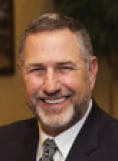Dr. Joel Small discusses the value of viewing the practice through the eyes of the patient
 In part I of my Practice Integrity series, I explored the meaning of integrity in the context of fulfilling clinicians’ stated and implied promises to our patients and referral sources. In part II of this series, I will address integrity in the context of a state of completeness or wholeness.
In part I of my Practice Integrity series, I explored the meaning of integrity in the context of fulfilling clinicians’ stated and implied promises to our patients and referral sources. In part II of this series, I will address integrity in the context of a state of completeness or wholeness.
Bestselling author Patrick Lencioni addresses the topic of organizational integrity in his book, The Advantage. According to Lencioni, “Organizational health is about integrity, but not in the ethical or moral way that integrity is defined so often today. An organization has integrity when it is whole, consistent, and complete, that is, when its management, operations, strategy, and culture fit together and make sense.” This holistic view of organizational health can be applied to a dental practice, or any business for that matter. Being whole, consistent, and complete is often overlooked as critical success factors for our practice’s health and ultimately our success and longevity, and yet to view our practice in this manner is to see ourselves as our patients see us. This ability to see our practice in terms of our patient’s experience is a gift that is possessed by the most successful practitioners.
As an endodontist, I have had a unique opportunity to see my referring doctors’ offices through the eyes of their referred patients. From personal experience, I have consistently found that the most satisfied patients view their referring offices as a single-functioning unit that is consistent in meeting their expectations and needs. Less satisfied patients view the referring office as fragmented and often make distinctions between their satisfaction and dissatisfaction with various aspects of the practice. Again, the same observation applies to any business in the service industry. Take, for example, an automobile dealership that has an exceptional sales team but a service/repair department that provides poor customer service. Most of the dealer-ship’s customers will have a diminished overall impression of the dealership due to an inconsistent customer experience, and many will choose to do business elsewhere in the future. If the dealership’s management fails to see the business from a holistic viewpoint, they may focus on sales alone, never considering their declining customer retention rate. Over time, the dealership will experience an increase in customer dis-satisfaction and a decrease in sales as its overall reputation declines.
Dentists, like other business owners, often fail to have a holistic view of their practice. Being perfectionists and meticulous clinicians, we tend to spend an inordinate amount of our time, effort, and resources on developing our clinical skills with less regard to developing our ideal practice culture that has proven critical to our patients’ overall experience. It is important to remember that our practice culture is a reflection of a mutually shared vision and values that are foundational to our business strategy, operating procedures, and organizational wholeness. With the right people and a strong culture, there is an overriding sense of purpose and commitment to providing seamless service and the best possible customer experience.
Please don’t misunderstand me; I also believe that we should continually work to upgrade our clinical skill, but the underlying question remains: Are we selling dental procedures or a patient experience, and bottom line, which one puts patients in our chair? According to noted authorities, it is the patient’s experience that is the overriding factor that determines our practice’s success even in these most competitive times.
I have found that our greatest disconnect as healthcare professionals and service providers occurs when we attempt to sell a product while our patient/customer is looking to buy an experience. Our patients have no concept of procedural perfection, but they unquestionably recognize what constitutes a pleasant experience. Given this, it would seem prudent for us to become more aware of the need for practice integrity or completeness as a means of meeting our patient’s need of an overall positive experience. Taking the time to explore our practice from a holistic perspective will allow us to see our practice as our patients see it and will pay lasting dividends.
Stay Relevant With Endodontic Practice US
Join our email list for CE courses and webinars, articles and more..

 Joel C. Small, DDS, MBA, FICD, is a practicing endodontist and the author of Face to Face: A Leadership Guide for Healthcare Professionals and Entrepreneurs. He received his MBA, with an emphasis in healthcare management, from Texas Tech University. He is a graduate of the University of Texas at Dallas postgraduate program in executive coaching and limits his coaching practice to motivated healthcare professionals. He is a nationally recognized speaker on the subjects of leadership and professional development. Dr. Small is available for speaking engagements and for coaching healthcare professionals who wish to experience personal and professional growth while taking their practices to a higher level of productivity. Dr. Small can be reached at
Joel C. Small, DDS, MBA, FICD, is a practicing endodontist and the author of Face to Face: A Leadership Guide for Healthcare Professionals and Entrepreneurs. He received his MBA, with an emphasis in healthcare management, from Texas Tech University. He is a graduate of the University of Texas at Dallas postgraduate program in executive coaching and limits his coaching practice to motivated healthcare professionals. He is a nationally recognized speaker on the subjects of leadership and professional development. Dr. Small is available for speaking engagements and for coaching healthcare professionals who wish to experience personal and professional growth while taking their practices to a higher level of productivity. Dr. Small can be reached at 